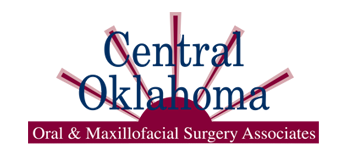Performed by an oral and maxillofacial surgeon (OMS), orthognathic surgery can make oral function more comfortable, preserve the health of teeth, and improve a person’s quality of life.
When is jaw surgery necessary?
While there are a number of non-invasive treatments, like dental restorations and orthodontics, that can address structural issues in the oral cavity, jaw surgery might be necessary to establish healthier oral function. An oral surgeon will recommend jaw surgery when non-surgical interventions are inadequate for addressing the problems associated with misaligned jaws.
When the jaws develop improperly or are misaligned, it can throw the entire oral health system out of whack. Misaligned and malformed jawbones can cause teeth to wear down prematurely, the temporomandibular joint (TMJ) to dysfunction, and many other unpleasant ailments. Aligning the jawbones properly can improve many issues associated with bad bites and the symptoms of TMJ disorder. Properly positioned jaws improve airway health, too, which is an important aspect of treating obstructive sleep apnea.
Improperly positioned jaws have far-reaching effects on a person’s health and quality of life. For example, TMJ disorder – a health condition associated with misaligned jaws and joint dysfunction – causes daily orofacial pain and impairs a person’s ability to chew food.
Will I be comfortable during my procedure?
When performing jaw surgery, an OMS takes great care to ensure that his or her patients are comfortable during treatment. Sedating and anesthetic medication is administered to promote physical comfort and emotional relaxation.
Why choose an oral and maxillofacial surgeon?
An OMS is a dentist with advanced education, board certifications, and experience to practice as a specialist. In addition to receiving an advanced degree, their post-graduate training involves hospital-based residencies to hone their surgical skills.
Call Central Oklahoma Oral & Maxillofacial Surgery Associates today to schedule a consultation.
